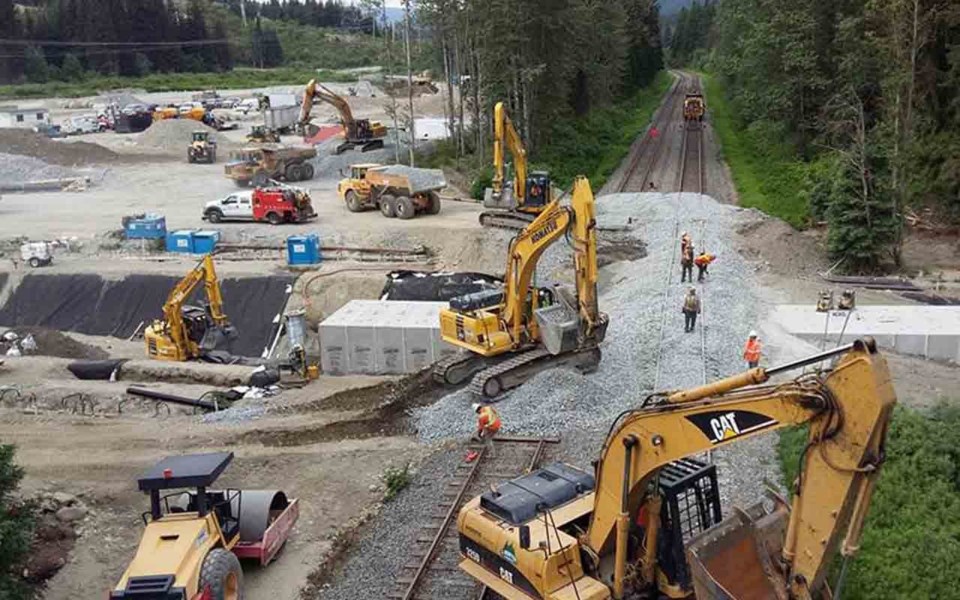Local officials were adamant about avoiding "the mistake" of past councils when considering whether to move forward on a rezoning application for an industrial site north of the village this week. At Tuesday's regular meeting of council, officials voted to proceed with the review of a proposal to amend the CTI1 (Community and Transportation Infrastructure) zone at the Nesters Crossing industrial subdivision. But the majority of the council table expressed concern over some of the changes in use proposed by the owners, fearing they would lead to the commercialization of one of Whistler's few industrial zones. The proponents requested a dozen amendments in all, with roughly half of them supported by staff.
Among the requested changes in use was a proposal to add a coffee shop of up to 95 square metres; a landscaping supply and nursery business; and indoor storage space that could be rented out to residents. (Storage for businesses onsite is already a permitted use.) The proponents also requested an increase to the maximum number of residential units per parcel from one to four, which would house workers employed on the premises, not just a caretaker or watchman, as is currently permitted.
But council was wary of supporting the bulk of the commercial uses, only giving the thumbs up, after some debate, to the proposal permitting indoor storage space. Council also supported the addition of shipping agents and freight forwarders to the site, saying they are consistent with the industrial purpose of the area. Fear of repeating the mistake of Function Junction, which was originally intended solely as an industrial zone, was top of mind for council when considering the proposal.
"(Function) was an industrial zone and it was created for that purpose... with no residential at all. Then, gradually over the years, there was slippage, first a little coffee shop, a studio, a retail store, and so on. Function today is a great place, but it was never planned to be a place for people living or driving around," recalled Mayor Nancy Wilhelm-Morden.
Steve Bayly, one of the proponents, said that the conditions in Whistler have changed significantly since the rezoning process was first initiated in 2007, and argued that the proposal to house staff onsite directly aligns with the municipality's own housing recommendations. "It seems incredible that, with a housing crisis, with a policy that demands that businesses look after their own employees, here's a bunch of businesses wanting to look after their employees within their own premises, and that's not good?" he asked. "I just don't get it."
Some at the council table initially supported the housing proposal, although, ultimately, it was not included among the supported amendments, in a vote of five to one. (Coun. Jack Crompton recused himself from the vote, as he owns a parcel on the site.)
Bayly also took issue with an amendment that ultimately went unsupported that would have removed the requirement that a minimum of 10 per cent of a parcel be landscaped. That is in addition to the landscaped berm already installed on the site, which the proponents feel is excessive.
"The double-dipping on the landscaping requirement is insane," he posited. The industrial site has provided its fair share of headaches to proponents, who dealt with years of municipal wrangling and upwards of $2 million in costs to meet the RMOW's requirements when the site-specific zoning for the area was first being developed over a decade ago.
With the benefit of hindsight, Bayly said he would reconsider developing Nesters Crossing altogether. "I wish I never had anything to do with it," he conceded.




